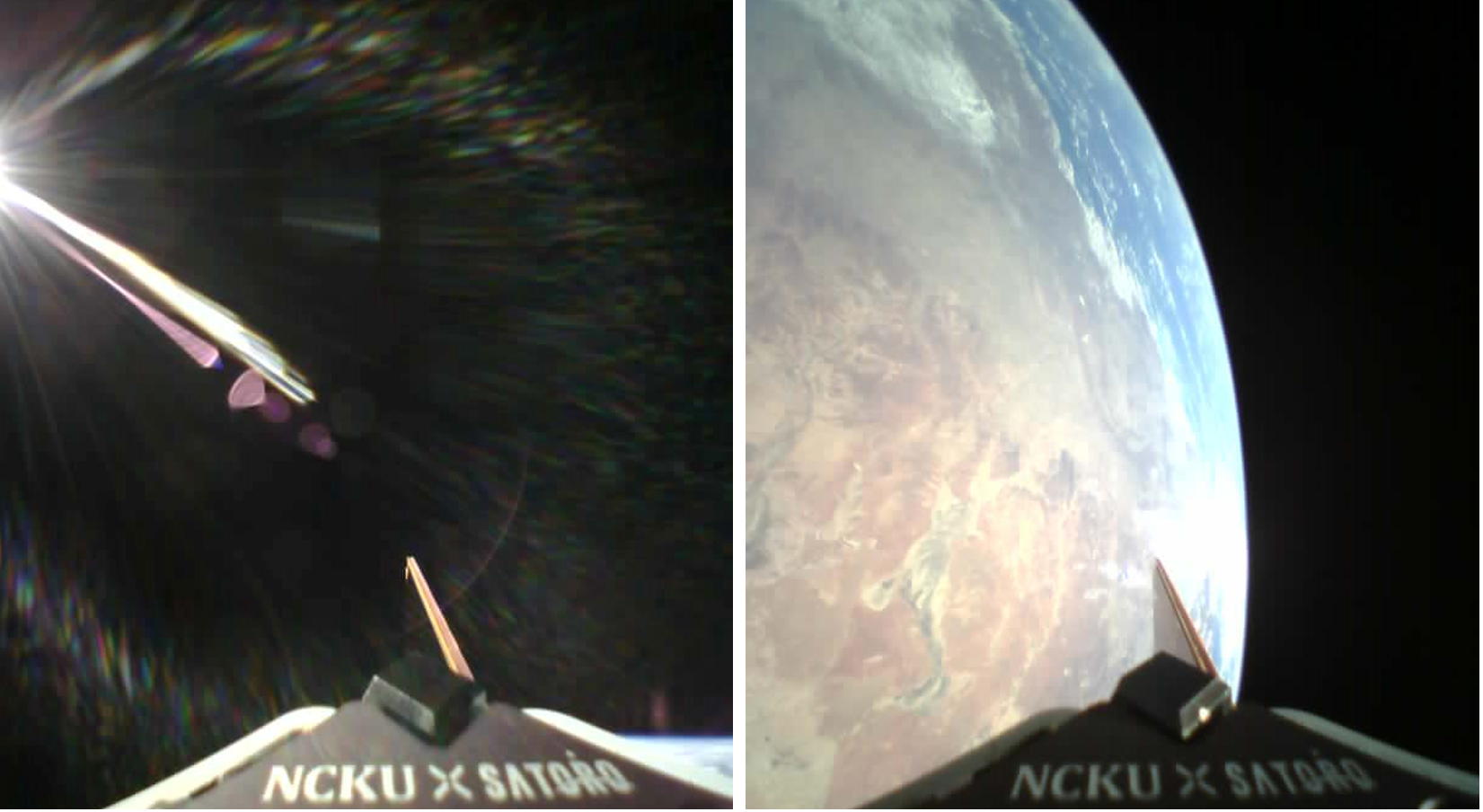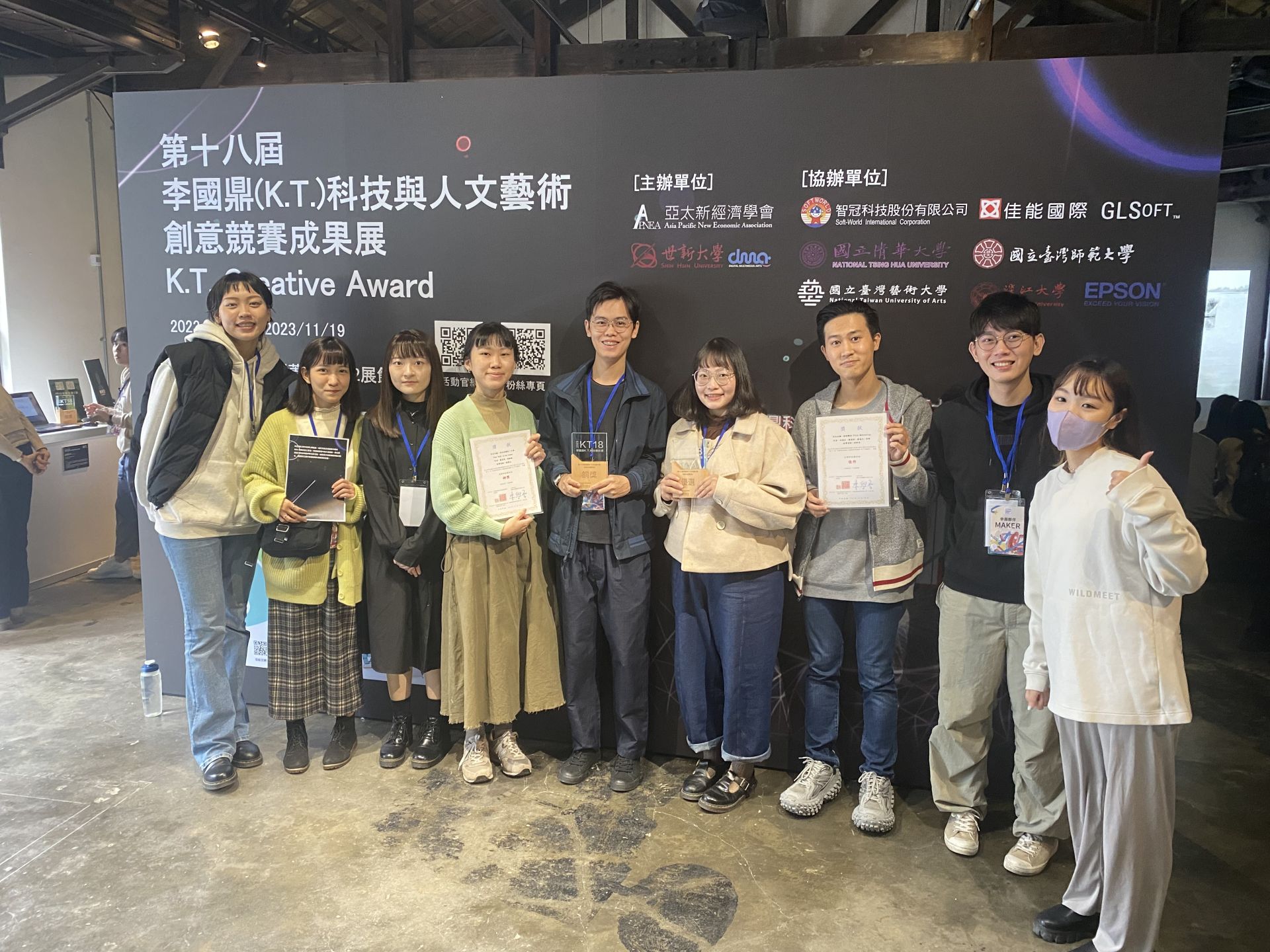SDG9
NCKU's Gemini Space team achieved 8th place globally and top in Asia in their debut at the International Cansat Competition.
NCKU's Gemini Space student team achieved 8th place globally and top in Asia at the International Cansat Competition held in Virginia, USA from June 7-9, 2024, organized by the American Astronautical Society (AAS) with co-sponsorship from NASA and NRL. This marked the first participation from Taiwan in the competition's 20-year history, garnering significant attention.
The Cansat Competition, hosted annually by AAS, aims to foster innovation and creative thinking in space exploration. Teams design and build satellites that fit inside a soda can, incorporating sensors and an egg protection module to simulate a planetary atmospheric entry sequence. The competition involves rigorous design analysis, practical testing phases, and a final rocket launch to evaluate flight performance. This year, 75 teams from 16 countries competed, with 31 teams qualifying for the finals and launch.
The Gemini Space team's satellite, measuring 13 cm in diameter and approximately 40 cm in length, weighing about 1 kg, was equipped with mechanical structures, avionics systems, flight software, and a ground station with a human-machine interface. The development process included testing using facilities at NCKU's Space Systems Engineering Institute to withstand launch and descent conditions.
During the final launch, the team nervously watched as their satellite was propelled into the sky. At an altitude of 600 meters, the satellite successfully deployed and shed its heat shield. As it descended, the parachute deployed at around 100 meters, slowing the descent and ensuring the egg remained intact. The ground station recorded the entire flight process, securing months of effort with successful data collection and communications.
The Gemini Space team from NCKU consists of eight senior students from the departments of Mechanical Engineering and Aerospace Engineering. The team members are led by captain Liang-Zhong Huang and vice-captain Dan-Nin Yan, along with members Bing-Hua Tsai, Zi-Wei Xu, Lu-Feng Lin , Yu-Sheng Wu, Yu-An Chu, and Chao-Xiong Zhang. Professor Bing-Chih Chen, director of the Han-Ming Summer Space Technology Center, serves as their advisor.
The team expressed that the competition was highly competitive. Despite their flight process being nearly flawless, their lack of prior competition experience led to slight deviations in the satellite's weight and landing speed from the specifications. They achieved an overall completion rate of 97.69%, securing 8th place out of 31 teams from 17 countries. Their completion rate was only 2.2% behind the top team, making them the top-performing team from Asia among the 9 participating teams.
Looking ahead, the team plans to learn from this competition experience, review areas for improvement, and make necessary adjustments to produce better results in future competitions. Team members are committed to continuing their studies and research in physics, space, and aerospace fields at NCKU, acknowledging the university's strong capabilities in these areas.
The Cansat Competition, hosted annually by AAS, aims to foster innovation and creative thinking in space exploration. Teams design and build satellites that fit inside a soda can, incorporating sensors and an egg protection module to simulate a planetary atmospheric entry sequence. The competition involves rigorous design analysis, practical testing phases, and a final rocket launch to evaluate flight performance. This year, 75 teams from 16 countries competed, with 31 teams qualifying for the finals and launch.
The Gemini Space team's satellite, measuring 13 cm in diameter and approximately 40 cm in length, weighing about 1 kg, was equipped with mechanical structures, avionics systems, flight software, and a ground station with a human-machine interface. The development process included testing using facilities at NCKU's Space Systems Engineering Institute to withstand launch and descent conditions.
During the final launch, the team nervously watched as their satellite was propelled into the sky. At an altitude of 600 meters, the satellite successfully deployed and shed its heat shield. As it descended, the parachute deployed at around 100 meters, slowing the descent and ensuring the egg remained intact. The ground station recorded the entire flight process, securing months of effort with successful data collection and communications.
The Gemini Space team from NCKU consists of eight senior students from the departments of Mechanical Engineering and Aerospace Engineering. The team members are led by captain Liang-Zhong Huang and vice-captain Dan-Nin Yan, along with members Bing-Hua Tsai, Zi-Wei Xu, Lu-Feng Lin , Yu-Sheng Wu, Yu-An Chu, and Chao-Xiong Zhang. Professor Bing-Chih Chen, director of the Han-Ming Summer Space Technology Center, serves as their advisor.
The team expressed that the competition was highly competitive. Despite their flight process being nearly flawless, their lack of prior competition experience led to slight deviations in the satellite's weight and landing speed from the specifications. They achieved an overall completion rate of 97.69%, securing 8th place out of 31 teams from 17 countries. Their completion rate was only 2.2% behind the top team, making them the top-performing team from Asia among the 9 participating teams.
Looking ahead, the team plans to learn from this competition experience, review areas for improvement, and make necessary adjustments to produce better results in future competitions. Team members are committed to continuing their studies and research in physics, space, and aerospace fields at NCKU, acknowledging the university's strong capabilities in these areas.
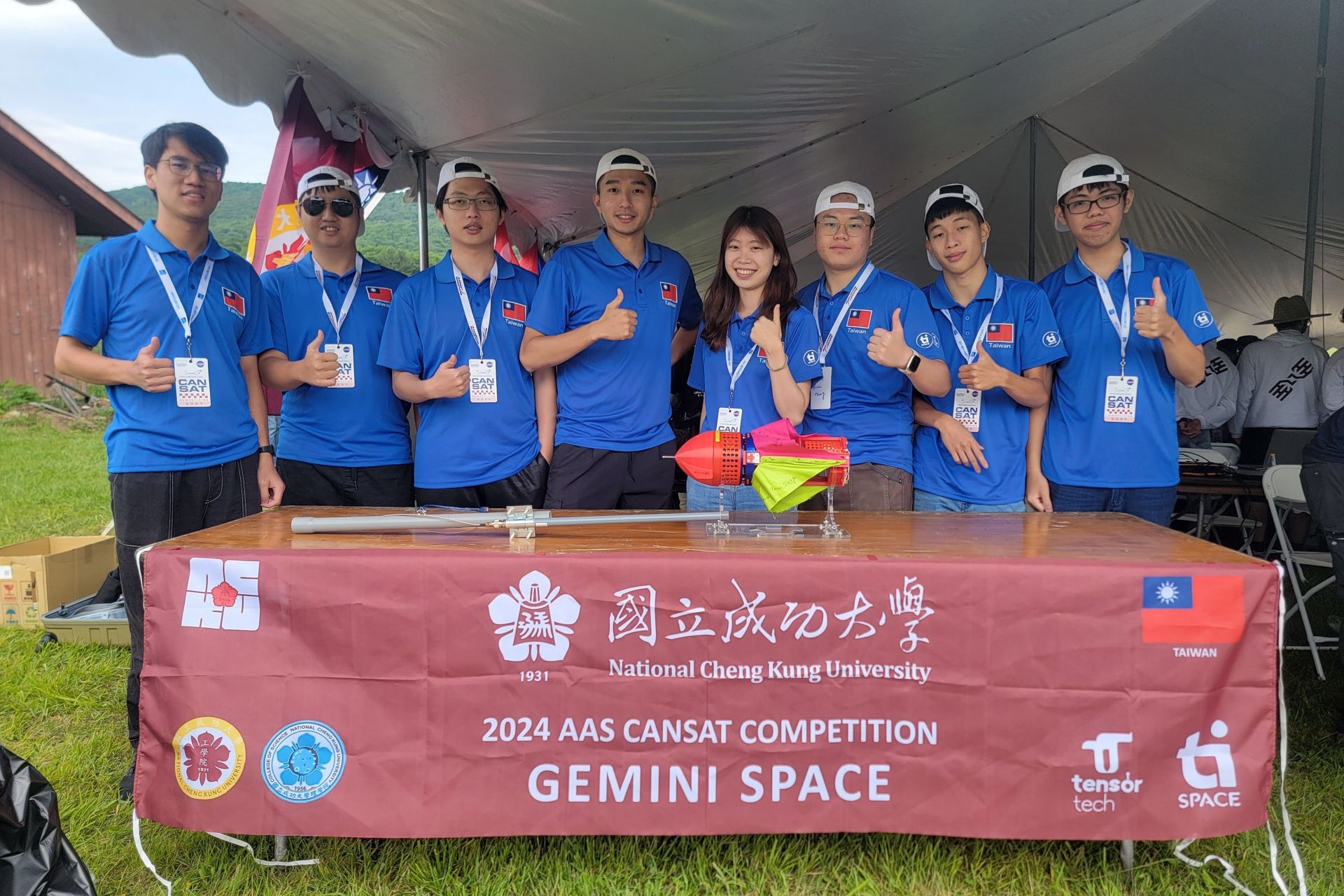
A photo of the NCKU Gemini Space team members with the canned satellite they designed and produced.
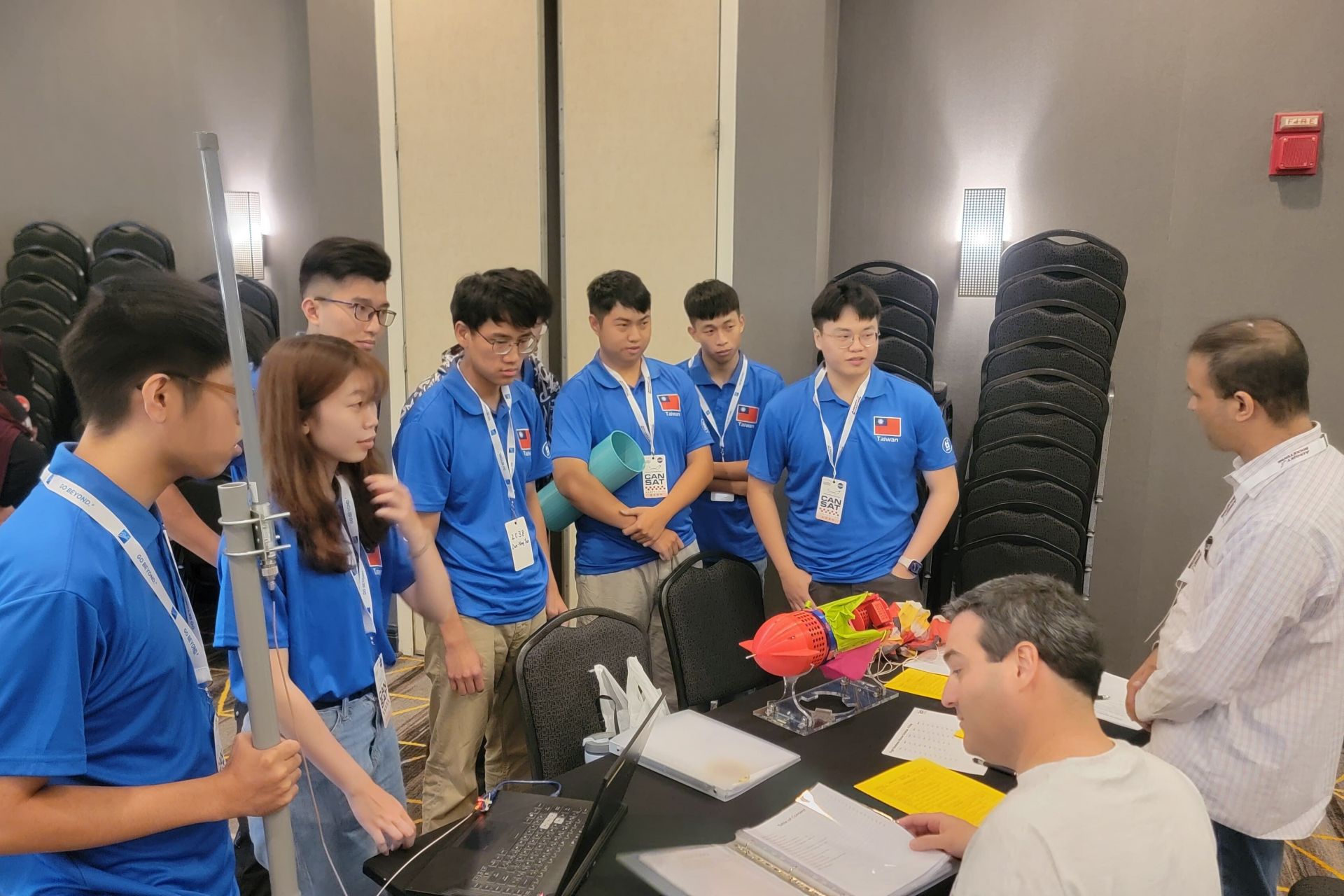
The NCKU team undergoes a review with the canned satellite.
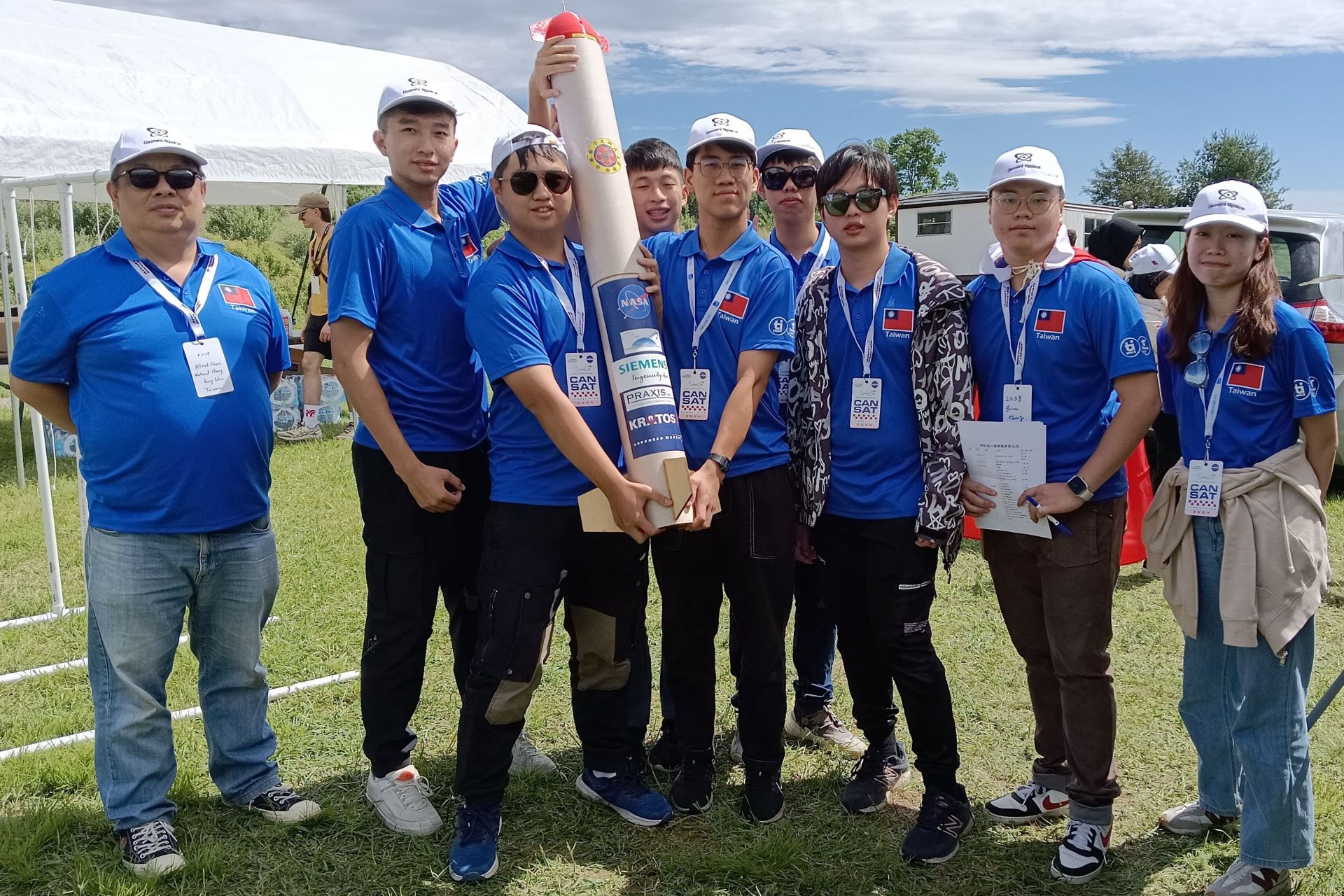
The team escorts the assembled canned satellite rocket to the launch pad.





